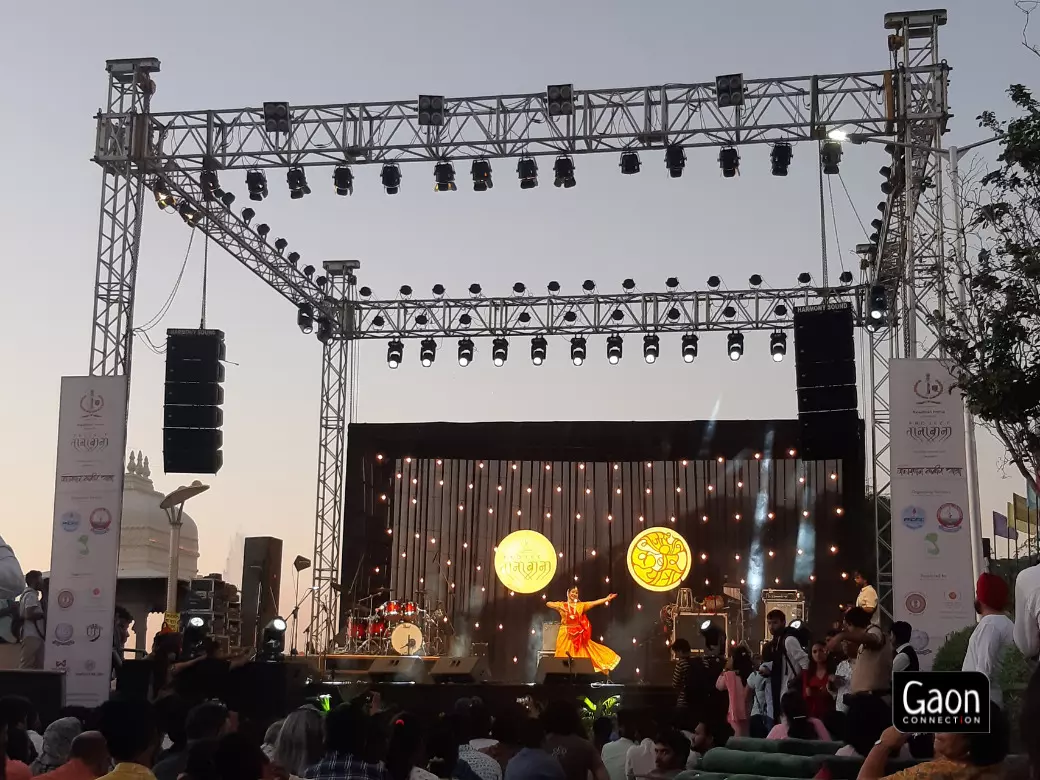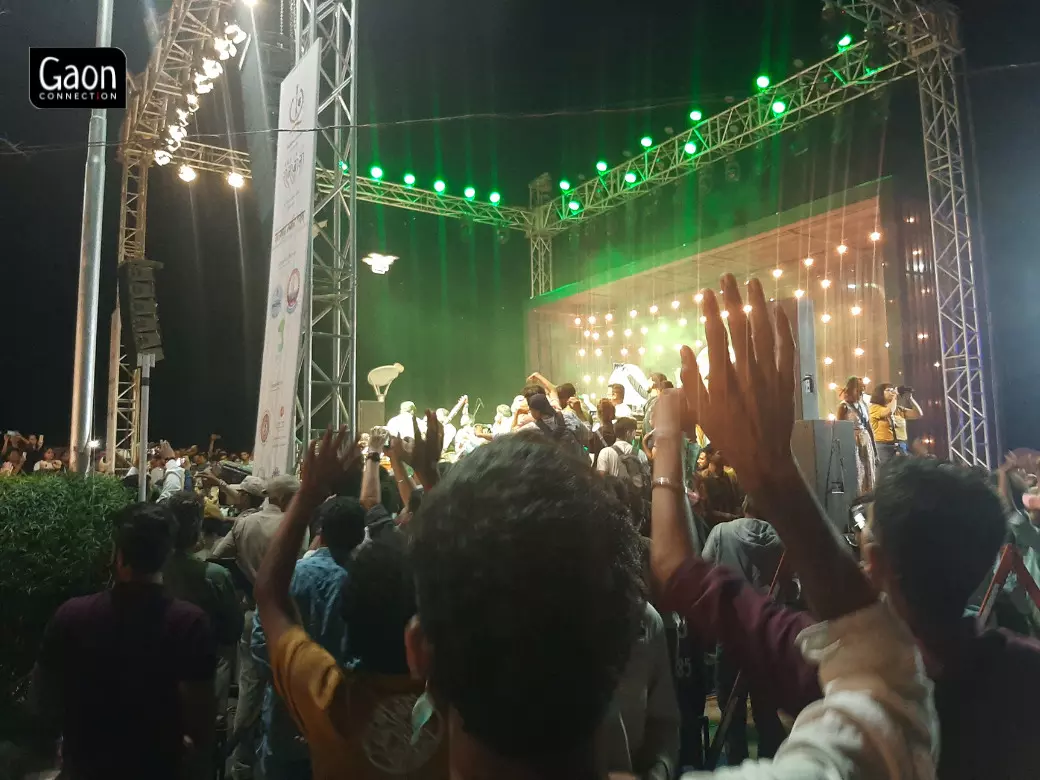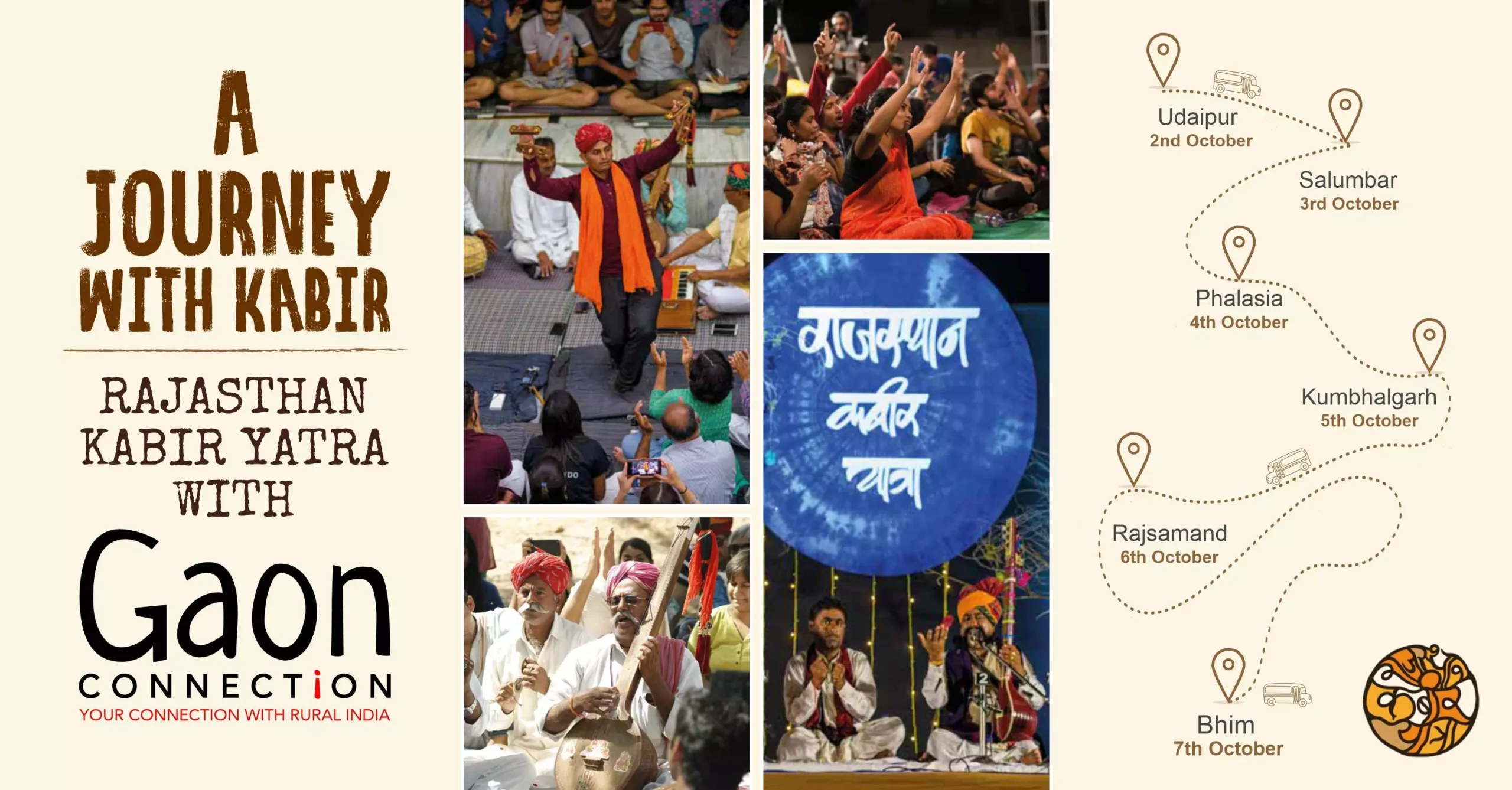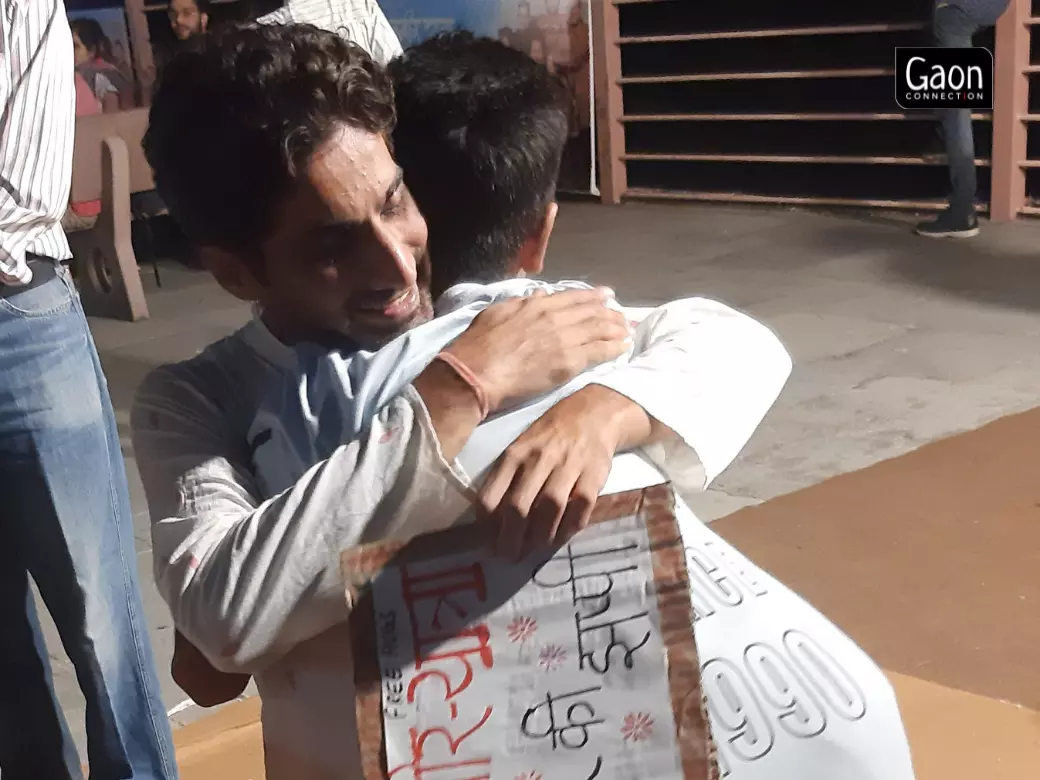Udaipur, Rajasthan
The banners announcing the Rajasthan Kabir Yatra flutter in the sweet breeze from the Fateh Sagar Lake in Udaipur. The skies are clear, the sun is making an orange splash as it prepares to set. A drone overhead takes shots of the people sitting on durries, sofas, and plastic chairs for the older lot of Kabir fans.
It is the Rajasthan Kabir Yatra 2022, and hundreds of young people in salwars and tee shirts, jeans and tee shirts, earrings, noserings and an impressive range of tattoos, mill around. Many of them are volunteers who have signed up to ensure that the Yatra, which has returned for its 6th edition after a break for two years due to the pandemic, is successful.
Musicians from across the country will perform from October 2 till October 8 in the villages of Kotda, Phalasia, Kumbhalgarh, Rajsamand, Salumbar, and Bhim.
Rajasthan Kabir Yatra is India’s longest travelling folk music festival, celebrating the oral traditions of the Bhakti, Nirgun and Sufi poetries such as Kabir, Mirabai, Baba Bulleshah, Gorakhnath, Shah Lateef, and other saints and sages who share a deep mystic ecstasy sublimated in their poetic voices.

Folk artists performing on the first day.
This folk music festival voyages across the rural regions of Rajasthan every year. It features performers and singers from different communities to come together and communicate the works of folk poets and philosophers.
Messages of peace, harmony and universal love from Kabir find themselves on merchandise that welcome the guests into the venue on the first day of the Yatra. On long benches are arranged jholas, postcards and badges all carrying Kabir’s couplets.
Also Read: Festive season, craft fairs help Odisha’s Kendara singers to find their lost ground
Bhakti, Baul and more
Kaluram Bamaniya set the mood for what was to come as he sang a full throated Mann Mast Hua that had the crowd clapping and cheering loudly. Kaluram Bamaniya is a folk singer who began singing early along with his father and grandfather. He is known for his rendition of Bhakti music in the traditions of Kabir, Gorakhnath, Bananath and Meera Bai.
Sumitra Das Goswami’s vibrant Chalti Chakki Dekh Kar… filled the arena. Singing on public platforms was not quite the thing to do for women. Goswami belongs to the Kamad community of minstrels from Jaitaran Pali district of Rajasthan, but women in her community were not encouraged to sing in public.
Yet Goswami turned her back on conventional norms and launched out. Today she performs regularly across the country and the world.
Baul singer Anand Das Baul and his fellow singers travelled all the way from West Bengal to Mewar and sang soulfully to the delight of many Bengalis in the crowd.
Vedanth Bharadwaj did a mash up of MS Subbalakshmi and John Lenon (where he seamlessly melded Maithreem Bhajatha and Imagine). Bharadwaj sings Hindustani, Carnatic and folk from the Bhakti Movement including Meera Bai, Guru Nanak and of course Kabir.
Mooralala Marwada had the crowd on its feet cheering as much for his impossible-not-to-dance-to music as for his magnificent moustache. He played to the crowd and there was not one person who was not clapping in time to his song.

It was an evening that had brought together the young and old, rich and poor from different parts of the country, who believed in different gods.
As the evening drew to a close (they had to stop by 10 pm), the final performance was by Kabir Cafe. The Indian, indie-folk and folk fusion band based in Mumbai raised the energy bar with groups of young people everywhere in the venue breaking into dance and singing along.
Man Mast Bhaya, Matkar Maya Ko Ahankar, and Ghat Ghat Mein Panchi Bolta Hai… brought the loudest cheers and whistles, and when the band begged Mooralala Marwada to join them, the crowd went wild.
It was an evening that had brought together the young and old, rich and poor from different parts of the country, who believed in different gods. But for those few hours they spent soaking in the music on the banks of the Fateh Sagar Lake, it was as if all barriers, boundaries and bigotries had vanished.
When music, people and police come together
The Rajasthan Kabir Yatra 2022 is organised by Lokayan Sansthan, a non-profit, has been working for and with folk artistes, historians and story tellers in Rajasthan for the past 25 years. The Rajasthan Police is supporting the event in a big way under its project Taana Baana. A large number of police personnel both in and out of uniform thronged the venue.
The Rajasthan Kabir Yatra was conceived of and begun by Gopal Singh Chouhan, cultural activist from Bikaner, in 2012. His knowledge about the folk music of Rajasthan and its people is immense and it is his heart’s desire that the songs and poems and music of the likes of Kabir, Baba Bulle Shah, Meera Bai and other Bhakti singers be preserved, nurtured and broadcast across the world. He is the secretary of Lokayan Sansthan.

“I can’t claim any credit for the festival. It is not as much a festival as it is a Yatra, a pilgrimage, and it is the people who make that happen,” Chouhan told Gaon Connection.
He described the large hearts of the people in the tribal villages where the yatra was stopping along its journey and said, “The people in the villages have thrown open their homes and hearts for the yatris and have made the festival possible. Without them there would be no yatra.”

Also Read: Phag and nagadiya add colour to the Holi festival in Baghelkhand region of Madhya Pradesh
In a press release, Praful Kumar, Inspector General of Police, Udaipur, spoke of the involvement of the police with the Kabir Yatra. He said the poetry of Kabir had the power of bridging gaps and healing wounds. The festival conveyed the powerful message of communal harmony. The artists and the yatris came from all communities.
“The yatra is being organised under Project Taana Baana, and the musical yatra will surely help in increasing social harmony at the local level,” the inspector general said.
The Rajasthan Kabir Yatra is a true homage to Kabir, Bulle Shah, Meera Bai, and the other poet saints who preached nothing but universal love.
In the coming week, this is going to be the energy that is going to infuse the yatris as they sing and dance their way across rural Rajasthan.

















